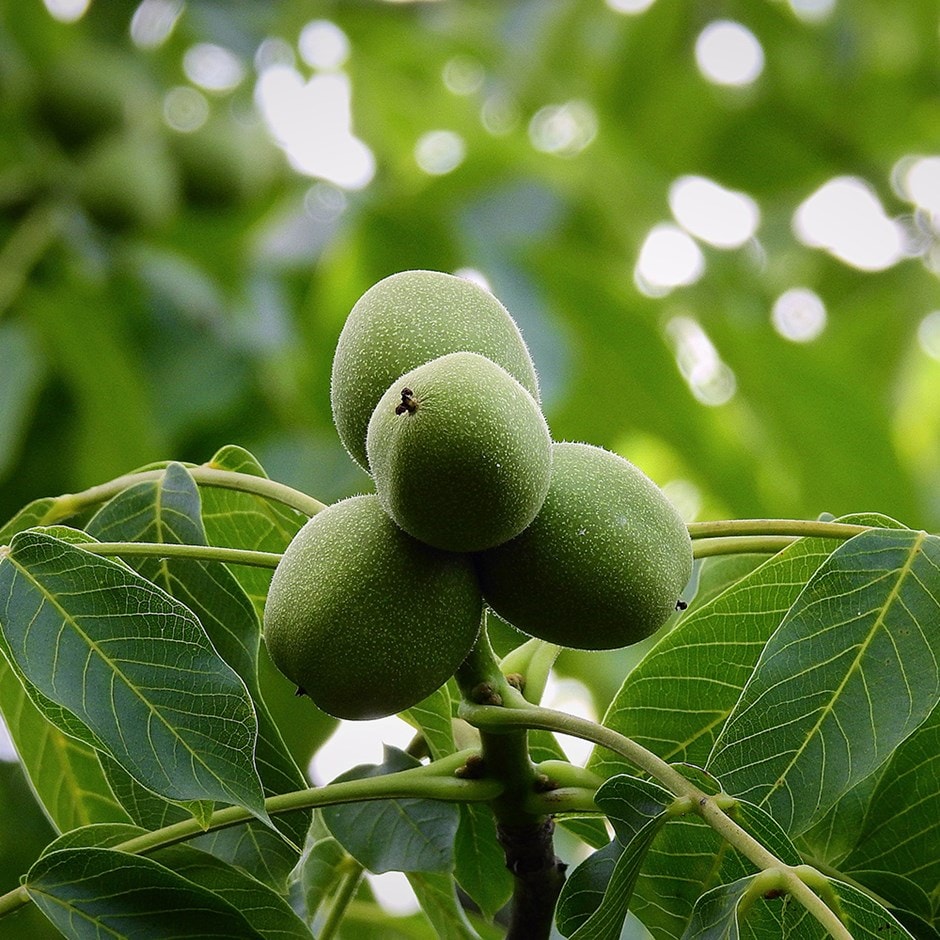walnut 'Buccaneer'
walnut
This tree is deciduous so it will lose all its leaves in autumn, then fresh new foliage appears again each spring.
- Position: Full sun
- Soil: Moderately fertile, moist but well-drained soil
- Rate of growth: Fast
- Flowering period: June
- Hardiness: Fully hardy
An upright and robust, self-fertile walnut cultivar that boasts early fruiting, yielding a bountiful harvest of nuts perfect for pickling. Its upright growth makes this popular tree an excellent choice for avenue plantings, and it begins to bear fruit as early as year four. The round nuts are well-suited for pickled walnut production, making 'Buccaneer' a reliable option in the UK due to its adaptability to the British climate. With regular pruning, it's also well-suited for smaller gardens, allowing it to be maintained at a manageable height while still producing an abundance of nuts.
Bare root plants should be planted out as soon as they arrive. If this is not possible, they can be heeled in temporarily (covering their roots with soil) or potted up. Before planting, soak the rootball in a bucket of water for half an hour and make sure to incorporate lots of well-rotted garden compost in the planting hole. Stake firmly in exposed positions and keep the base of the tree weed free. Fertilise at the beginning of each year and water regularly during hot, dry spells. Pruning should be undertaken between late summer and autumn to avoid excessive bleeding. Walnut trees prefer full sun or light shade in a sheltered position with no frost pockets. They tolerate many soil types but thrive best in light, sandy, well-drained soils. Walnuts can be difficult to establish the first year after planting and some dieback of shoot tips is to be expected. For pickling walnuts, harvest the nuts in July while the skins are still soft and before shells fully form.

